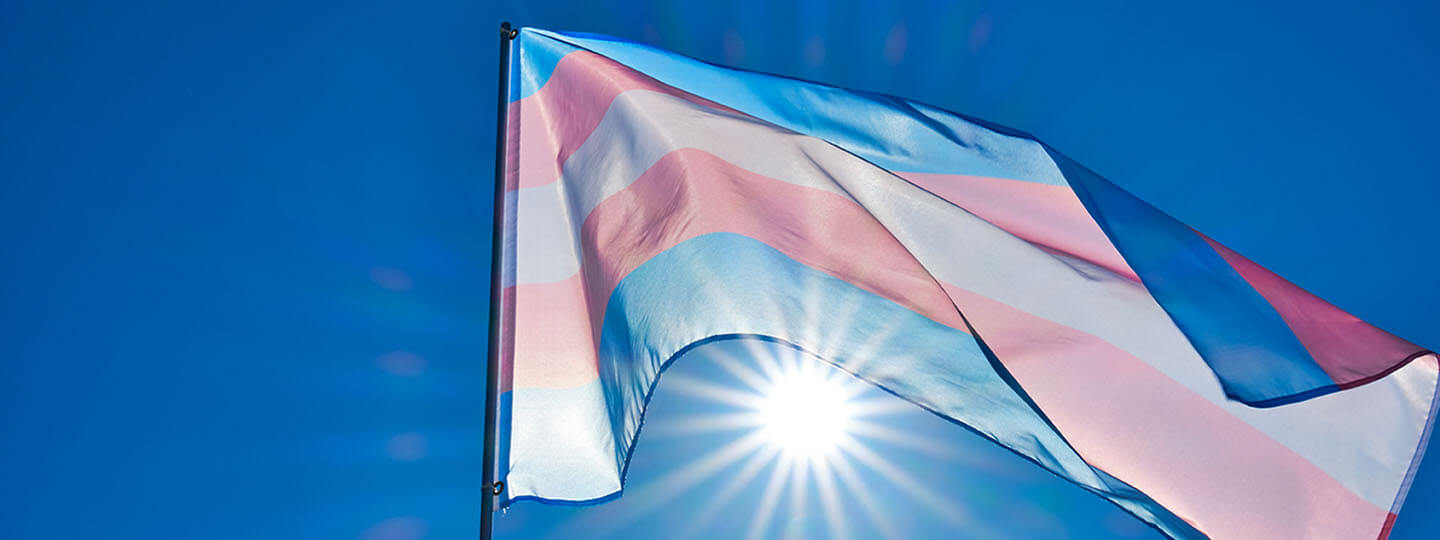I think I might be transgender
I think I might be transgender
There are many ways to be transgender and everyone’s experience is different.

Being transgender is when the gender you feel you are is different from the gender you were given at birth.
This also includes being non-binary which can mean not feeling like any gender, feeling both male and female, or feeling fluid in your gender in that you feel male and female at different times. It can also mean feeling partly or completely a different gender than either male or female.
Some people have a strong feeling of this from an early age and others aren’t aware until they are older.
Gender identity and expression
There are many ways to be transgender and everyone’s experience is different. Most trans people need time and space to be able to explore their own gender identity. It’s often helpful to get support from others in doing this.
No one should feel pressured into coming out about their gender identity before they are ready to. It’s also OK to never come out to others. Your gender identity is about you and what feels right and comfortable for you.
Gender identity and expression are two different things. Gender expression doesn’t have to match gender identity, for instance you may feel male but have a feminine gender expression.
Becoming aware of being misgendered (given the wrong gender at birth) can bring up a lot of feelings. For some people, it can be really confusing and unsettling. Others might feel scared and not want this to be happening to them. It might make them feel anxious or depressed.
They may be afraid of talking to their families or friends in case they will not understand or reject them. In some cases, they might not even have the words to describe how they feel, but just a sense that something isn’t right. This can leave people questioning whether there is something wrong with them or not. Not knowing who to talk to or even how to talk to someone can leave people feeling lonely.
Transitioning
Expressing your gender identity is a process and takes time. You have probably heard the word “transitioning”. This means moving from living your life from your given gender at birth to the gender you feel you are. Lots of people never transition. It’s not something you have to do, nor is it a set of steps that have to be followed.
It’s different for everyone. It can involve exploring a pronoun that fits your gender identity better, changing your name, or changing how you look.
You might decide to come out to friends, family, and at work/school/college. Some people legally change their name and gender so that all of their legal documents reflect their identity. Others may choose to make physical changes which can involve hormone therapy, and in some cases surgery.
There are some people who transition and then de-transition. What is right for one person is not necessarily right for others. Each person makes decisions based on their own needs with the freedom to explore their own gender identity.
There is no one way to be transgender just as to be cisgender (people who feel they are the gender they are given at birth). Everyone is different. It’s important to have an authentic expression of who you feel feels you really are. This may change over time. Giving yourself time and space to explore, learn and experiment is OK.
Getting support
Finding someone to talk to who is trustworthy and supportive is vital. Unfortunately, not everyone will understand and it is important to be prepared for this. This can be very painful when someone close to you is not supportive.
Many trans people report feeling afraid of coming out to others because of the misinformation and stigma that is out there. Others have experienced being outed by someone before they were ready.
Control of our own stories is so important and particularly during times when we are feeling uncertain. Social media can be particularly confusing and tricky as alongside helpful and positive material, there is also commentary that is judgemental and discriminatory. This can end up making you feel down, anxious and bad about yourself.
Organisations such as BelongTo and TENI are really helpful in giving good information and support.
What happens if/when I come out?
Not feeling that you can express your gender can cause a lot of stress. It can be overwhelming and can bring up feelings of fear shame, hopelessness, and despair. Lots of people feel a sense of relief when they come out.
This is particularly true when family and friends are supportive. Lots of people who come out as trans are supported by the people in their life.
However, sometimes when people come out as trans they can feel not listened to, not taken seriously, or patronised. You might not feel supported by school, college, or workplaces. It can feel like your needs are too much of a bother for others.
Often workplaces, schools, or colleges don’t have a good understanding of trans issues and are unsure how to respond. This can be very disappointing. It can be hard and uncomfortable always having to advocate for your rights.
It can feel frustrating when you are not properly supported in things like using the toilets, changing rooms, or playing sports that reflect your gender identity. This might make you feel angry, ashamed, or hurt.
People who identify as non-binary talk about the frustration at constantly having to explain themselves to other people.
Health professionals
Some trans people have experienced a lack of understanding from both physical and mental health practitioners. Again they may not understand trans issues and can dismiss someone as being confused, mistaken, or in “just a phase”. Many services do not give a 3rd gender as an option which can leave people feeling unseen and that their identity is not recognised.
If you have physical or mental health needs it’s important that you see someone who understands what being transgender means and doesn’t treat you as though you are the problem. Professionals are becoming more aware of trans issues. You might get a recommendation from someone you know or through organisations like TENI or BelongTo.
Exploring your gender identity can bring up a lot for people. Like most things in life, it’s made easier by the support of others. It’s not something that you have to do alone. It’s about finding the person that you can trust who allows you to figure out your gender identity and how you want to express it.


